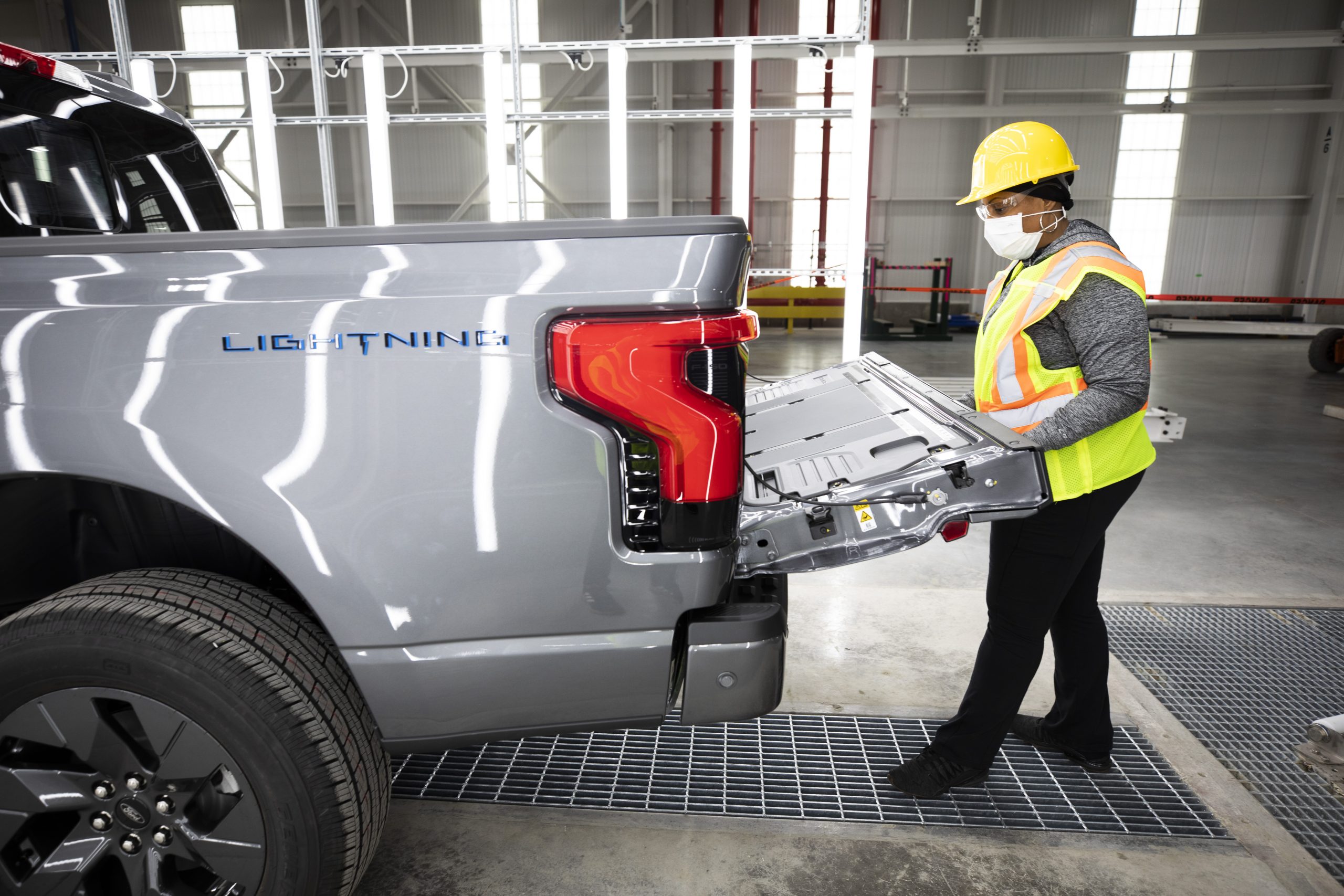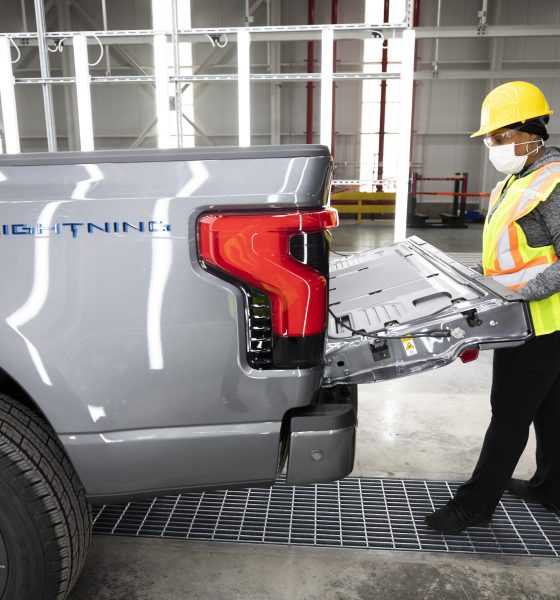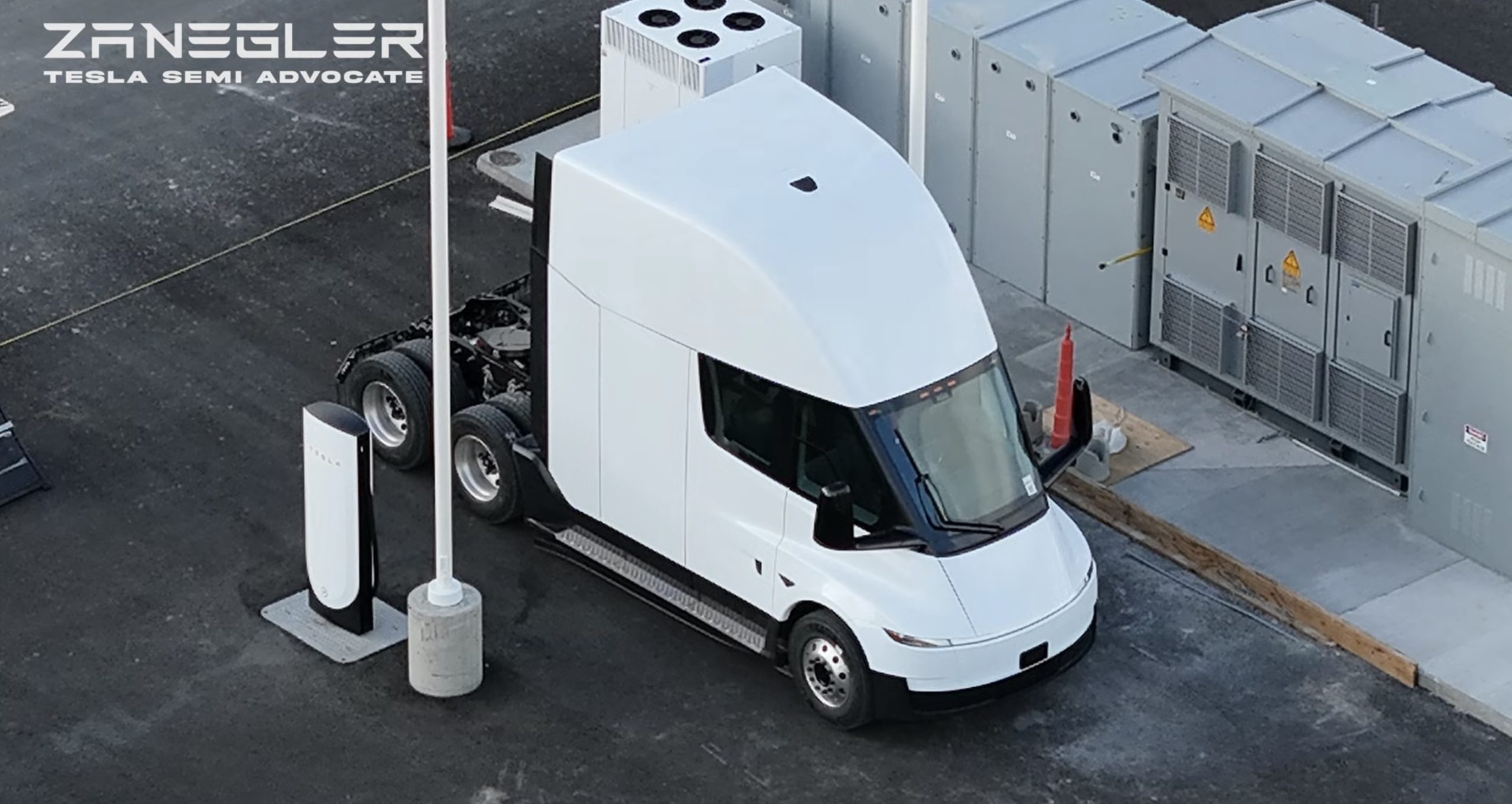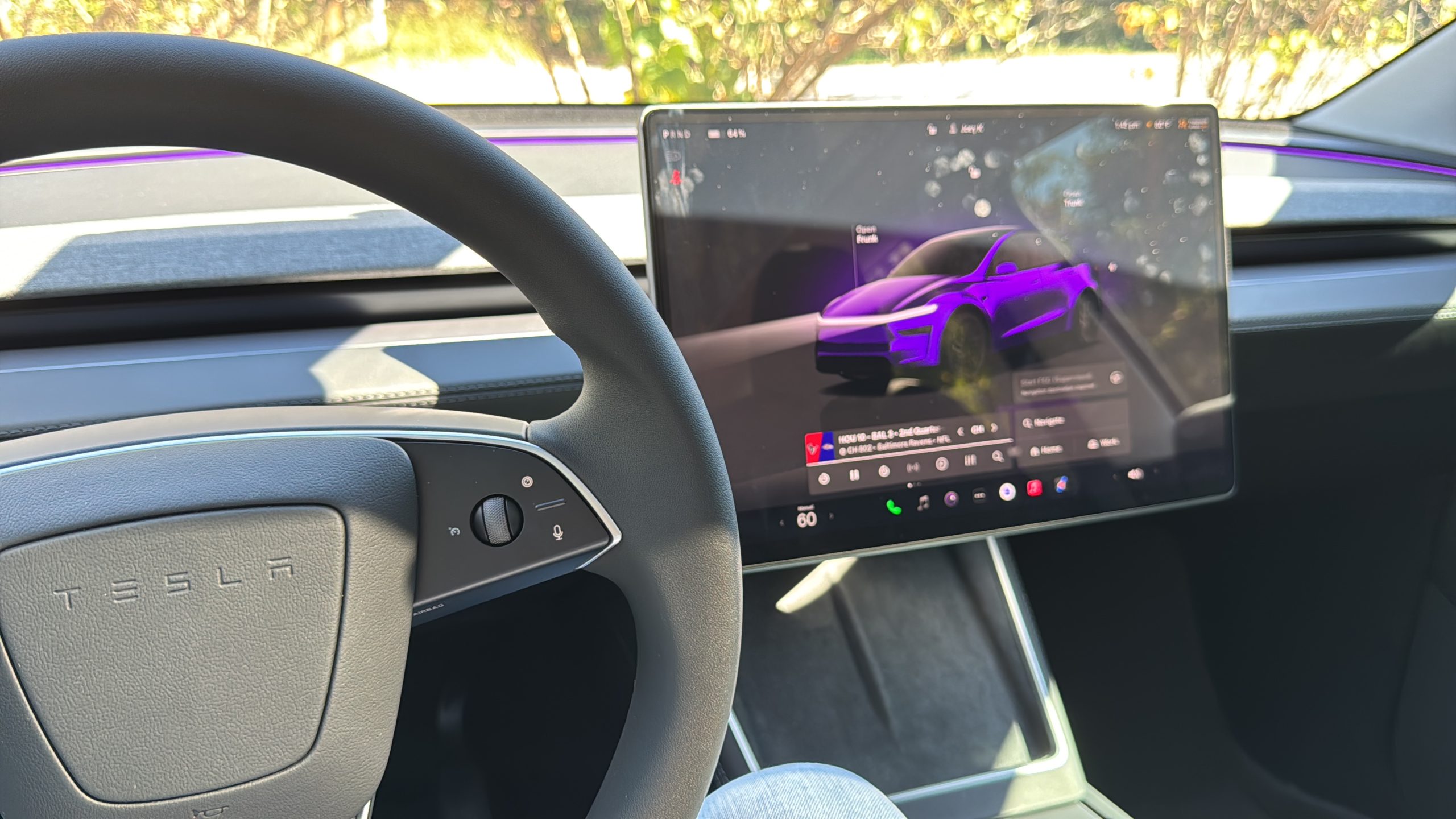

News
Ford, GM, Stellantis, Toyota push for Congress to eliminate EV tax credit limits
The CEOs of Ford, General Motors, Stellantis, and Toyota all urged Congress to eliminate the cap on the $7,500 electric vehicle tax credit as zero-emissions vehicles cost more to manufacture.
In a letter seen initially by Reuters, Ford’s Jim Farley, GM’s Mary Barra, Stellantis’ Carlos Tavares, and Toyota North America’s Tetsuo Ogawa urged congress to eliminate the caps, which apply to any automaker after they sell 200,000 EV units. The CEOs cited an over $170 billion investment plan collectively through the four companies through 2030 as a way to ensure EV development is still underway. Eliminating the cap would likely need some massive support from these CEOs, and the plans their respective companies offer should eliminate any potential reservations Congress could have regarding the development of EVs.
“We ask that the per-(automaker) cap be removed, with a sunset date set for a time when the EV market is more mature,” the letter said. “Recent economic pressures and supply chain constraints are increasing the cost of manufacturing electrified vehicles which, in turn, puts pressure on the price to consumers.”
A recent study from Kelley Blue Book showed new vehicle prices across the board have risen 13.5 percent in the past year. Tesla’s average transaction price has swelled to $65,369 per unit. The company’s average transaction price in May 2021 was nearly $13,000 cheaper, as it sat at $52,553.
Other EV makers like Rivian and Lucid have also increased the prices of their vehicles over the past year. Lucid’s price hikes took effect on June 1, while Rivian attempted to increase reservation holder prices by up to 20 percent earlier this year before backtracking.
The tax credit cap only has Tesla and GM buyers disqualified from receiving the credit. However, Ford sold 160,000 EVs last year alone, and Toyota said in April it expects to lose its access to the $7,500 credit later this year.
The letter appears as auto industry executives begin to question whether the potential timeframe for the EV tax credit to be extended is coming to a close. Democrats currently have control of both houses of Congress and if Republicans take one or both of them over, EV incentive programs may become tougher to pass. However, some Democrats are even against the credit.
Joe Manchin, who has spoken openly regarding his distaste for a fast transition to EVs, said in March that he didn’t “want to have to be standing in line waiting for a battery for my vehicle because we’re now dependent on a foreign supply chain – mostly China.”
In April, Manchin added that soaring gas prices had surged EV interest, even in companies that do not have access to the credit. Additionally, Manchin wasn’t keen on Chinese battery components being used in U.S. cars. “There’s a waiting list for EVs right now with the fuel price at $4. But they still want us to throw $5,000 or $7,000 or $12,000 credit to buy electric vehicles. It makes no sense to me whatsoever,” Manchin said before calling the credits “ludicrous.”
I’d love to hear from you! If you have any comments, concerns, or questions, please email me at joey@teslarati.com. You can also reach me on Twitter @KlenderJoey, or if you have news tips, you can email us at tips@teslarati.com.

Elon Musk
Elon Musk highlights one of Tesla FSD Supervised’s most underrated features
In his post on X, Musk wrote, “Tesla self-driving now recognizes hand signals.”

Tesla’s Full Self-Driving (Supervised) is able to recognize and respond to hand signals, as highlighted recently by CEO Elon Musk.
In his post on X, Musk wrote, “Tesla self-driving now recognizes hand signals.”
Musk shared the update in a quote reply to a video posted by Tesla Europe, which showed a vehicle operating with Full Self-Driving (Supervised) navigating a tight lane in the Netherlands while responding to hand gestures from a person directing traffic.
Hand signal recognition is an important capability for advanced driver-assistance and autonomous systems. In real-world driving, pedestrians, construction workers, parking attendants, and other drivers frequently use hand gestures to direct traffic, yield right of way, or indicate when it is safe to proceed. For a self-driving system operating in mixed environments, interpreting these non-verbal cues is critical.
Musk’s post comes as Tesla owners have surpassed 8 billion cumulative miles driven with FSD (Supervised) engaged. “Tesla owners have now driven >8 billion miles on FSD Supervised,” the company wrote in a post on X.
Annual FSD (Supervised) miles have increased sharply over the past five years. Roughly 6 million miles were logged in 2021, followed by 80 million in 2022, 670 million in 2023, 2.25 billion in 2024, and 4.25 billion in 2025.
In the first 50 days of 2026 alone, Tesla owners logged another 1 billion miles. At the current pace, the fleet is trending toward approximately 10 billion FSD (Supervised) miles this year.
Tesla’s latest North America safety data, covering all road types over a 12-month period, also indicates that vehicles operating with FSD (Supervised) were recorded one major collision every 5,300,676 miles. By comparison, the U.S. average during the same period was one major collision every 660,164 miles.
News
Tesla hiring for Commercial Charging role hints at Semi push in Europe
The job opening was highlighted by David Forer, Senior Project Developer for Charging at Tesla, on LinkedIn.

Tesla appears to be expanding its Commercial Charging efforts in Central Europe. The job opening was highlighted by David Forer, Senior Project Developer for Charging at Tesla, on LinkedIn.
In a post on LinkedIn, Forer stated that Tesla is looking for a “high-energy executer to own Commercial Charging Sales in Central Europe.” He added that the role will involve closing commercial deals across Tesla’s “entire product range (Supercharging & Megacharging).”
The job listing specifies that the hire will lead the sale of Tesla’s high-power charging products, including Supercharger and Heavy Duty Charging, to major partners such as charge point operators, real estate owners, and retail companies. The role requires fluency in German and English and is based onsite in Munich.
Tesla already operates more than 75,000 Superchargers globally, though the Semi’s Megacharger network is still in its early stages. The inclusion of Heavy Duty Charging in the job description is notable, then, as it aligns with Tesla’s Megacharger infrastructure, which is designed to support the Tesla Semi.
Tesla CEO Elon Musk recently confirmed that the Tesla Semi is moving into high-volume production this 2026. In a post on X, Musk noted that “Tesla Semi starts high volume production this year.”
Aerial footage of the Tesla Semi Factory near Giga Nevada also shows that the facility looks nearly complete, with work now underway inside the facility.
Tesla has also refreshed the Semi lineup on its official website, listing two variants: Standard and Long Range. The Standard trim offers up to 325 miles of range with an energy consumption rating of 1.7 kWh per mile, while the Long Range version provides up to 500 miles.
Both variants support fast charging and can recover up to 60% of range in 30 minutes using compatible infrastructure such as the Megacharger Network.
The presence of Heavy Duty Charging in a Central Europe-focused sales role could indicate that Tesla is preparing charging infrastructure ahead of wider Semi deployment in the region. While Tesla has not formally announced a European launch timeline for the Semi, the vehicle, particularly its range, makes it an ideal fit for the area.
Elon Musk
Tesla Full Self-Driving set to get an awesome new feature, Elon Musk says

Tesla Full Self-Driving is set to get an awesome new feature in the near future, CEO Elon Musk confirmed on X.
Full Self-Driving is the company’s semi-autonomous driving program, which is among the best available to the general public. It still relies on the driver to ultimately remain in control and pay attention, but it truly does make traveling less stressful and easier.
However, Tesla still continuously refines the software through Over-the-Air updates, which are meant to resolve shortcomings in the performance of the FSD suite. Generally, Tesla does a great job of this, but some updates are definitely regressions, at least with some of the features.
Tesla Cybertruck owner credits FSD for saving life after freeway medical emergency
Tesla and Musk are always trying to improve the suite’s performance by fixing features that are presently available, but they also try to add new things that would be beneficial to owners. One of those things, which is coming soon, is giving the driver the ability to prompt FSD with voice demands.
For example, asking the car to park close to the front door of your destination, or further away in an empty portion of the parking lot, would be an extremely beneficial feature. Adjusting navigation is possible through Grok integration, but it is not always effective.
Musk confirmed that voice prompts for FSD would be possible:
Coming
— Elon Musk (@elonmusk) February 21, 2026
Tesla Full Self-Driving is a really great thing, but it definitely has its shortcomings. Navigation is among the biggest complaints that owners have, and it is easily my biggest frustration with using it. Some of the routes it chooses to take are truly mind-boggling.
Another thing it has had issues with is being situated in the correct lane at confusing intersections or even managing to properly navigate through local traffic signs. For example, in Pennsylvania, there are a lot of stop signs with “Except Right Turn” signs directly under.
This gives those turning right at a stop sign the opportunity to travel through it. FSD has had issues with this on several occasions.
Parking preferences would be highly beneficial and something that could be resolved with this voice prompt program. Grocery stores are full of carts not taken back by customers, and many people choose to park far away. Advising FSD of this preference would be a great advantage to owners.








